
"The sad confession which every true scientific man learns to make is, 'I am ignorant; I want to learn'" - Louis Agassiz
The history of science is one of my primary interests. What constitutes science, how scientific opinion and data has changed or appeared, and what sort of influence the whole field of science has on culture, as well as vice versa. Despite all its glory, science is, after all, a very narrow vacuum of understanding when viewed in a historical context. It can only tell us so much, and when the majority of society places upon it burdens and responsibilities it cannot live up to, distortion is inevitable.
Hmm, perhaps a chiseling of definitions is in order. After all, science can apply to different things when used in a general context (i.e., historical science). In the comments on my last article, a debate erupted over whether or not Creation and Evolution are falsifiable and therefore “real science.” I tried to explain that Creation and Evolution are scientific worldviews whose sub-hypotheses constitute predictions, which are falsifiable, which thus constitute “real science.” After thinking things through for awhile and looking things up, I realized why there was so much confusion over what is true science.
Empirical science, technically, is true science. Empirical science is a system of study which deals with observable and repeatable – and therefore testable or experimental – evidence. I suppose we could call it the “useful science,” because it is from empirical science that we get medical advancements. Sounds like the sort of material that should be able to solve all the world’s problems, right? Before you place your faith in it, consider this:
“These evolutionary happenings are unique, unrepeatable, and irreversible. It is as impossible to turn a land vertebrate into a fish as it is to effect the reverse transformation. The applicability of the experimental method to the study of such unique historical processes is severely restricted before all else by the time intervals involved, which far exceed the lifetime of any human experimenter. And yet, it is just such impossibility that is demanded by anti-evolutionists when they ask for ‘proofs’ of evolution which they would magnanimously accept as satisfactory.”
– Theodosius Dobzhansky, geneticist and evolutionary biologist
“Our theory of evolution has become, as Popper described, one which cannot be refuted by any possible observations. Every conceivable observation can be fitted into it. It is thus ‘outside of empirical science‘ but not necessarily false. No one can think of ways in which to test it. Ideas, either without basis or based on a few laboratory experiments carried out in extremely simplified systems, have attained currency far beyond their validity. They have become part of an evolutionary dogma accepted by most of us as part of our training.”
– Paul Ehrlich, evolutionary biologist
Thus, the scientific worldviews of Creation and Evolution are not empirical science. Microevolution, or change within a genome, is within the realm of empirical science, because we observe it all the time. Macroevolution, on the other hand, is not within the realm of empirical science. The evolutionary explanation is often just “it happens so slowly that we can’t observe it.” Thus, there needs to be convincing historical evidence for it (such as in the realm of paleontology). The Great Flood recorded in the Bible is, for us, an unobservable, unrepeatable event. It is comically absurd for someone to mix up a bunch of dirt in a fish tank with some water and presume that the results from that “experiment” verify or invalidate the occurrence of a kataklysmos in the earth’s past. If it wasn’t technically even a flood, but rather an unfathomable disaster of epic proportions that is never supposed to occur again, then it can only be studied through historical, archaeological and paleontological evidence (and hey, if you’re going to accept Archeopteryx as evidence of macroevolution, then the presence of bivalves on the tops of mountains is certainly evidence of a global flood-like disaster!). The original Creation of life is, for us, an unobservable, unrepeatable event (which is why it is outside the realm of empirical science). We do, however, see procreation and human abilities to design and create complex things, and we see that nothing comes from nothing. Totally spontaneous generation from nonliving matter with no outside influence would be the only solid evidence against the scientific worldview of Creation.
In the long run, then, arguing over whether or not the scientific worldviews of Creation and Evolution are falsifiable is pointless. Their validity depends upon MUCH more than the realm of empirical science. So, why does anyone call Evolution indisputable fact? Why such offense at anyone who questions Evolution? I get the impression that skeptics gravitate toward science because they have a human desire for security, for belief in something steadfast. From what I’ve learned, science is too tentative for such gratification.
For your amusement, here is a scene from a screenplay about the life of a famous scientist (setting: late 19th century):
17 INT. DR. P.H. JAMESON’S HOME
In the large dining room, all a-glow with sophistication,
the dignified DR. JAMESON and charming MRS. JAMESON
introduce PROFESSOR EDWARD MORSE.
DR. JAMESON
Allow me to take a moment to give our guest of honor a formal
introduction – Welcome Professor Edward S. Morse.
The guests offer a gentle applause.
MRS. JAMESON
His accomplishments ought to serve as an inspiration to us all –
though few of us have his ambidextrous talent.
PROFESSOR EDWARD MORSE
Oh, but that was almost my undoing. I got nothing out of the classroom – albeit myself -because I couldn’t quit carving pictures in the desks.
Laughter.
MRS. JAMESON
Draw us something, why not?
She hands him paper and pen.
PROFESSOR EDWARD MORSE
A portrait is what you’re
expecting, I presume?
MRS. JAMESON
You presume awfully quickly,
Professor. Do you wish to prove your hand at portraiture? I don’t mind – you’re the artist.
DR. JAMESON
As well as a scientist. How did
you ever learn to focus on
something as scholarly as
science?
PROFESSOR EDWARD MORSE
(alternating hands while
sketching)
When you are able to keep your mind open to new knowledge constantly there isn’t as much boredom. Science came naturally.
DR. JAMESON
You even made your way into Harvard.
PROFESSOR EDWARD MORSE
I was fortunate to become the student assistant of Professor Louis Agassiz at the Museum of Comparative Zoology at Harvard University. Agassiz, he – he was undoubtedly a truly scientific
man, yet I left him over a disagreement. I am not dependent solely on the views of other
eminent scientists. If any of you can understand – surely it would
have been nonsense to my status in the field of science if I remained allied with someone that eventually opposed true science.
There is a brief silence as the listeners ponder what he
just said. Finally MRS. JAMESON speaks up with curiosity.
MRS. JAMESON
I’m no scientist, but I know a thing or two about common logic. Professor Morse, how can a truly
scientific man possibly oppose true science?
PROFESSOR EDWARD MORSE
Well, now the science I referred
to is Evolution. It has been presented by Darwin and endorsed
by a great many in the scientific society.
MRS. JAMESON
(laughs)
“Presented”? “Endorsed”?
“Society”? Forgive me, but you make this “true science” sound like just a trend.
DR. JAMESON
Darling, that statement of yours sounded ruthlessly frivolous.
MRS. JAMESON
I am absolutely intrigued! Explain to me, young Mr. Wiley,
why you are intrigued by science – or what is science, for that
matter?
HARVEY WILEY
Any student of medicine can be presented with “cures” for the various ailments that afflict
mankind, but few answers as to the roots of both health and disease. Science is a tool that
is used to unearth answers to the workings of the natural world, and I am intrigued as to why no one puts more emphasis on objectivity in the field of
medicine. I am hoping that by delving into science I will see
honest answers.
PROFESSOR EDWARD MORSE
I am glad to see science so regarded by a student of
medicine, Mr. Wiley. But I would hardly say that “trend” is the
right word, Mrs. Jameson. A scientific theory should gain
more respect than that.
MRS. JAMESON
How much theoretical persistence
may be respected when truth is on the line? Something as
influential as science must demand accuracy.
PROFESSOR EDWARD MORSE
As well as not have its advancements hindered. Perhaps
the greatest age in science is yet to come – and surely there
are more discoveries to be made. My job is not to fret over the
currently indeterminable. It is to have my mind open to evidence.
HARVEY WILEY
Advancements – do you think that advancements in science will improve the trials and afflictions of humanity?
PROFESSOR EDWARD MORSE
Why would progress not bring
improvement?
HARVEY WILEY
Would those who ignore such
advancements be considered primitive?
DR. JAMESON
I suppose so.
HARVEY WILEY
When I studied as a medical apprentice, Dr. Hampton and I
encountered many poor country folk. They were distant from
improved society and lived off their homesteads – isolated from
culture, you might say. Yet they were healthier and more resilient
than most of those living in more advanced communities that I have
witnessed. What explanation is there for that?
DR. JAMESON and PROFESSOR EDWARD MORSE respond with
pondering stares. MRS. JAMESON responds with sarcasm…
MRS. JAMESON
Shame on you, Harvey Wiley, for daring to question a doctor and a
scientist on something that neither can answer!
DR. JAMESON
Well now, Wiley, all the medicine
in the world will not provide you with all the answers. Maybe a few
cures to problems, but not many answers as to their existence. I
really don’t know what else to tell you. Maybe nutrition and so
forth has something to do with it.
HARVEY WILEY
Nutrition? Then it is evident that medicine has not dealt with
that scientifically. Either that or science is actually
experiencing a decline as it increases in public interest.
PROFESSOR EDWARD MORSE
I would presume it to lie with the former.
MRS. JAMESON
You presume everything, Professor.
MRS. JAMESON
(To HARVEY WILEY
sarcastically)
What if you – young Mr. Wiley – and I decided to make a bet against these scientific
individuals? A bet that they are never quite certain as to what is
merely presumable and what is fact.
HARVEY WILEY
(amused)
Now, Mrs. Jameson, you know how dangerous it is to gamble with
the elite. I was under the impression that it is their job to challenge us.
PROFESSOR EDWARD MORSE
The ideas are challenging, as every idea presumes something.
DR. JAMESON
I think that they want to see science confirm something to be true or false, Professor Morse.
PROFESSOR EDWARD MORSE
Science is quite tentative.
MRS. JAMESON
Oh, I see. Just as long as I don’t resemble an ape in my portrait.
The room fills with laughter that gradually fades away to
the next scene.
~Amanda~

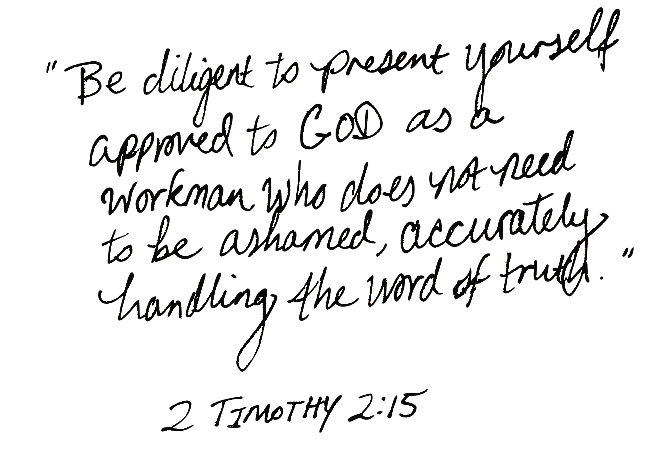
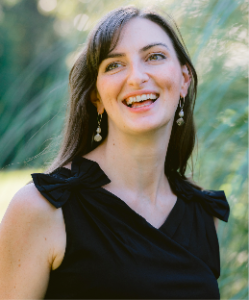

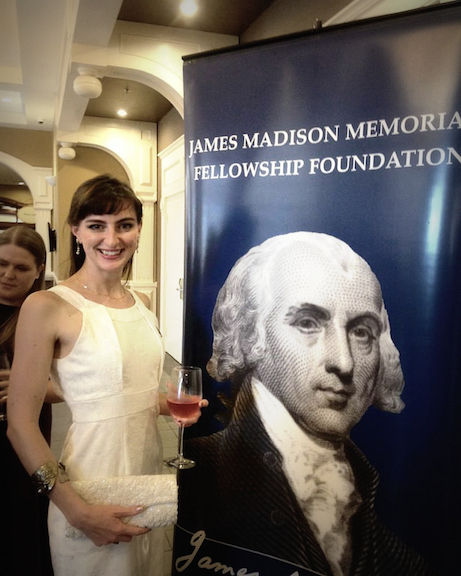
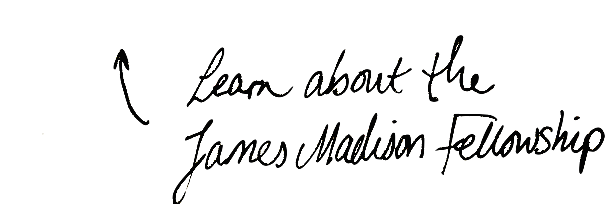


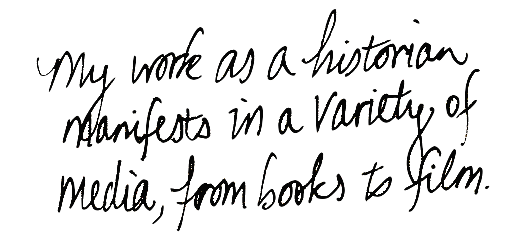
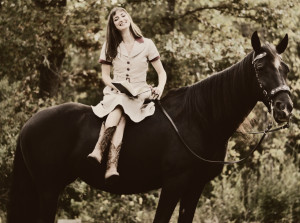
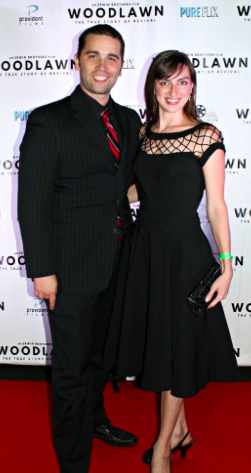

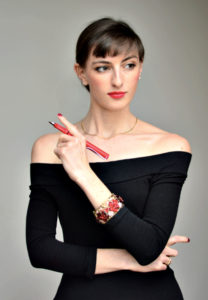
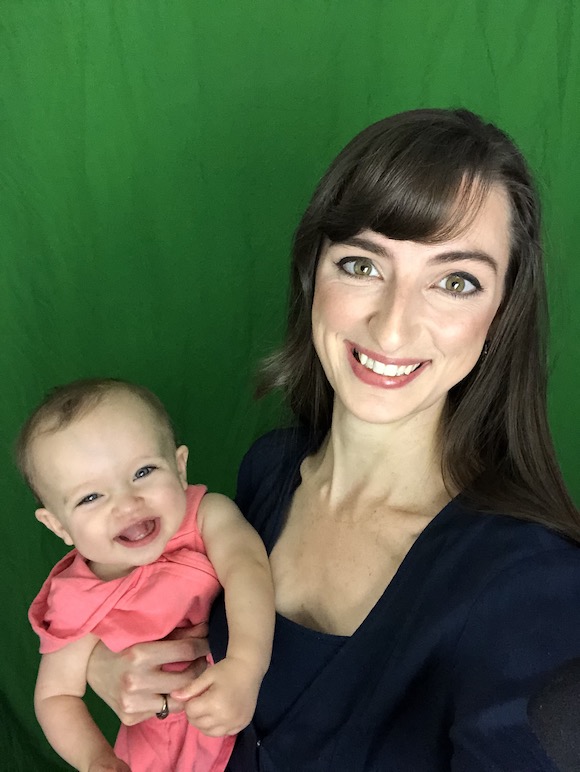
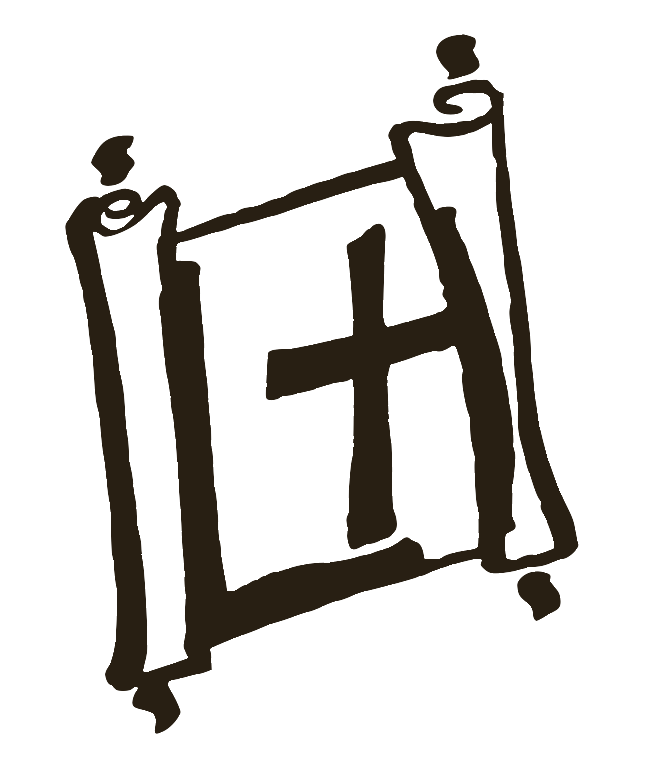
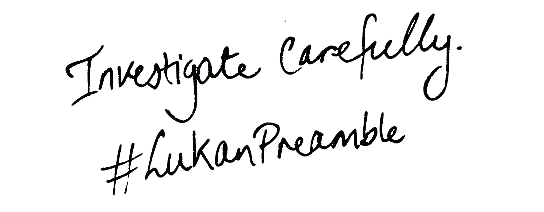
Alert
Ms/Mrs Amanda Read is engaging in a dishonest practice known as “quote mining,” wherein the words of an “authority” on a subject are taken out of context in order to change their meaning. Neither Theodosius Dobzhansky nor Paul Ehrlich believe that the theory of evolution is untestable or unfalsifiable.
Theodosius Dobzhansky is discussing the unrepeatable nature of all historical sciences. He goes on to explain why historical science are still regarded as such in the following paragraphs.
Ehrlich (and co-author Birch)’s comments come from an article in which they criticise how some ecologists investigate matters poorly by turning too readily to untestable assumptions about the past to answer their questions rather than first turning to explanations that are falsifiable. Neither is commenting on the theory of evolution as a whole.
Whether Ms/Mrs Amanda Read engaged in this dishonest practice out of dishonesty, or merely an innocent ignorance of the source of the quotes, is a question I would prefer not to speculate on.
I offer my apologies for the redundant, and quite frankly rather silly, wording in the final paragraph of my previous post. I refer to the quickly repeated use of the term “dishonest.”
A question for you Amanda: Archeopteryx. Does it more closely resemble a reptile or an ave, judging by morphology alone?
Might I suggest you watch Can an Evangelical Christian Accept Evolution?
It answered a lot of questions for me.
Well if we are going to use quotes.
In his notebooks Leonardo Da Vinci ponders fossil seashells and concludes that they could not have been laid down by the Noachian flood.
“If the Deluge had carried the shells for distances of three and four hundred miles from the sea it would have carried them mixed with various other natural objects all heaped up together; but even at such distances from the sea we see the oysters all together and also the shellfish and the cuttlefish and all the other shells which congregate together, found all together dead; and the solitary shells are found apart from one another as we see them every day on the sea-shores.
“And we find oysters together in very large families, among which some may be seen with their shells still joined together, indicating that they were left there by the sea and that they were still living when the strait of Gibraltar was cut through. In the mountains of Parma and Piacenza multitudes of shells and corals with holes may be seen still sticking to the rocks…”
Leonardo Da Vinci: Selections from the Notebooks of Leonardo Da Vinci. 1510.
But Bathtub, Leonardo was only saying that because he was imagining a fish tank not an “occurrence of a kataklysmos”.
I for one believe the flood must be true because of sea-shells. Global flood plains, dissappearing masses of water and general physics be damned.
Your screenplay was a bit haphazard, Wiley appeared from nowhere. Nevertheless if I comprehended it you’re still searching for some sort of certainty. So again, your problem is philosophical not scientific. Do you understand why?
Seashells and the like only show that the rock that makes mountains were at one time bottoms of seas, which is absolutely no Geological Mystery. The process is ongoing and measurable.
The point is a mythical flood was being written off a long time ago and has nothing to do with an ‘Atheist’ or ‘Evolutionary’ Worldviews.
As bought up in the previous thread, Creationists can’t tell you what is Creation Rock, Pre Flood Rock, Flood Rock or Post Flood Rock.
So unless you invoke unrefutable magic, the rocks we have fit in with pretty well (no one is claiming perfect) understood physical processes, and attempts to speed up these processes hit pretty insane roadblocks (such as boiling the planet).
Quasar: I think Archeopteryx resembles a fully functional bird.
But see, watch how the missing link debate spins in circles. Some scientists might call it a missing link, other scientists might say it’s just a breed of bird that is extinct. The evolutionists would point to the supposed age of the fossil. But watch for the circular reasoning: they say that the age of a fossil is based on which layer it is found in, and they say the age of the layer is based on which type of fossil is found there. When a dating procedure such as carbon dating is introduced, the room for error is immense.
Bathtub: I’ve long been a fan of Leonardo Da Vinci, so I’ll be interested in researching that quote in the copies I have of his notebooks.
Vagon: I had the YouTube video that Chris posted in mind when I wrote about the fish tank fallacy. I didn’t say bivalves were the ONLY convincing evidence of a global flood-like disaster.
“So again, your problem is philosophical not scientific.”
I’ll tell you what I perceive to be the problem here. Someone commented on the last post that the things I brought up were not really open to discussion because they were “indisputable” facts (I take that indisputable = certain). Atheists repeatedly cite science as their certainty of Evolution and their near certainty that there isn’t a God. But if a search for certainty is philosophical and not scientific, why do you keep looking for certainty in science? Why keep trying to redefine and stretch science?
Once again, science is a narrow vacuum of study. You can’t place upon it the burdens of certainty in relation to such issues. You have to consider a wide range of studies, including history, etc.
Oh, that scene is from an old script draft that I wrote when I was 16 (ha, instead of chick flick romances, my interest was in science history). It is based on a true story, real people and real conversation. Wiley seems to appear from nowhere because it’s in the middle of the story (from previous scenes you would know he was there – he’s the main character).
Did I mention that I didn’t get any of my information from Answers in Genesis? Woot!
😉
~Amanda~
Come on Amanda, lets try and stay away from strawmen? Ok? The only people that say Fossils date the Rocks date the Fossils are Creationists. If that was remotely true we wouldn’t the dozens of Radiometric Dating Techniques now would we?
Index Fossils (which by their nature are only found in certain strata) are used to give relative dates of Strata but of course they only become Index Fossils after being dated with some other method in the first place.
Just as an example, Ardi was dated from the layers of Ash above and below.
Missing link is a marketing term, nothing more. I believe from the ‘ladder of creation’ thinking when people thought life was some giant ladder with Humans at the top.
Can you give us the definition of bird? Because there is pretty much 1 major reason Archaeopteryx is a bird. It has feathers.
But there are something on the order of 20 features why it isn’t a bird. In fact at least one specimen was identified as another species of dinosaur because they were essentially identical from just the skeleton until closer examination revealed the feathers.
The thing is today, if we wanted to, could say ‘fine Archaeopteryx is a bird’, because there are now over 2 dozen Feathered Dinosaur species discovered by now. Seperate and Distinct from Archaic Birds of which there are also more known.
In fact it’s quite funny, if Jurassic Park were made today it would look quite different. As evidence is accumulating that both Velociraptors and T-Rex’s were feathered in some way. Would the movie have been quite as scary with the Velociraptors looking like giant chickens?
Oh and I would be very impressed if you did stay away from AIG But I am not sure if any one is saying you have to.
“Atheists repeatedly cite science as their certainty of Evolution and their near certainty that there isn’t a God.”
Cool I see what you mean, but the certainty science searches for is contextual and I hope I can clarify this. Scientific “certainty” relates to a degree of confidence regarding knowledge – human knowledge – the only type of knowledge that is coherent (within materialism).
When someone says we are certain that evolution took place it means not that we know that it is correct because we observed it. It means as far as anything is currently knowable, we know evolution is correct.
Like Newton’s gravity this is not to say one day there wont be an overarching theory that improves evolution, it is that the data leads to evolution in such a comprehensive way that it allows us to make hypotheses and base social improvements based on the theory with extreme effectiveness.
“But if a search for certainty is philosophical and not scientific, why do you keep looking for certainty in science? Why keep trying to redefine and stretch science?”
As to why, I’d posit that is one of the basic needs/goals of humans: a greater understanding of our world. A step closer to certainty. The benefits of this are not always immediately understandable but things like quantum physics have had a huge influence on our technological developments, while evolution is fast becoming the leading model for understanding one of the greatest mysteries of all time: the human brain. I personally find that exciting.
If this makes sense, and if you like, I could show you why the same scientific certainty does not apply to creation “science” or why philosophical claims of certainty are flawed. If it doesn’t let me know and hopefully I can clarify or expand on the vague bits.
“Oh, that scene is from an old script draft that I wrote when I was 16”
Kudos to you then, not bad for a 16yr old’s draft.
I think Archeopteryx resembles a fully functional bird.
Ah, bathtub beat me to it.
Archaeopteryx has very few avian features. Feathers are the obvious one, which are shared with quite a few newly discovered feathered dinosaurs. The second-most obvious is it’s opposable big toe, which has led to the oft misquoted statement by Alan Feduccia (who believes that Archaeopteryx decended from archosaurs rather than theropods) “It is a bird, a perching bird. And no amount of ‘paleobabble’ is going to change that.”
All of Archaeopteryx’s other avian features have been found in theropods.
On the other hand…
– No beak
– Vertebrae are free (in bird’s they’re fused)
– Public shaft cross-section
– Shape of the cranial cavity (brain)
– Neck attaches to skull from the rear (underneath in birds)
– Long, bony tail
– Teeth
– Slender, jointless rib-bones
– Sacrum occupies only 6 Vertebrae (in birds it’s 11-23)
– Hand free, with flexible wrist
– Nostrils far forward
– 3 Claws
– Unfused digits (fingers and toes)
I think Archeopteryx resembles a fully functional bird.
Ah, bathtub beat me to it.
Archaeopteryx has very few avian features. Feathers are the obvious one, which are shared with quite a few newly discovered feathered dinosaurs, such as Sinosauropteryx, Caudipteryx, Sinornithosaurus and the famous Microraptor. The second-most obvious is it’s opposable big toe, which has led to the oft misquoted statement by Alan Feduccia (who believes that Archaeopteryx decended from archosaurs rather than theropods) “It is a bird, a perching bird. And no amount of ‘paleobabble’ is going to change that.”
All of Archaeopteryx’s other avian features have been found in theropods.
On the other hand… reptile features:
– No beak
– Vertebrae are free (in bird’s they’re fused)
– Public shaft cross-section
– Shape of the cranial cavity (brain)
– Neck attaches to skull from the rear (underneath in birds)
– Long, bony tail
– Teeth
– Slender, jointless rib-bones
– Sacrum occupies only 6 Vertebrae (in birds it’s 11-23)
– Hand free, with flexible wrist
– Nostrils far forward
– 3 Claws
– Unfused digits (fingers and toes)
– Free (unfused) foot bones.
Without the feathers, no paleontologist would hesitate to classify Archae as a dinosaur, even with an opposable toe.
I like Archae.
I was always a Jughead fan myself.
Bu-dum-TISH.
Amanda said: “Once again, science is a narrow vacuum of study.”
For those living in 1st world countries, everything that we have to make our lives more comfortable to live is due to science.
You seem to be an otherwise intelligent person Amanda, but to believe in myths like the flood and creationism as if they were real events just makes you look simple.
Hadron, the funny thing is that to me it seems exactly the other way around. I can’t get over the fact that a cell must have all of its components together at once in order to function. It seems simple to imagine nothing creating everything, not to mention creating everything well designed.
Yes, empirical science, medical science and engineering are very useful tools that have produced great things, but Darwinian evolution has nothing to do with the practical fields. When we try to apply the debate of “why life is the way it is” to science, not all of what we want to find out fits into empirical science that can be tested over and over again. When it comes to interpreting evidence written in the earth, things get hazy and adversarial because scientists have different worldviews and interpret evidence differently.
~Amanda~
Darwinian evolution has nothing to do with, say, penicillin-resistant bacteria? Really?
Additionally, you might be interested to note that organelles existed long before the things you’re referring to as “cells” did. Mitochondria and chloroplasts (appear to have) evolved from ancient prokaryotes, the evidence for which can be found in similarities in the way they divide/reproduce and in their genetic composition (ie. the same genes are found in all three).
Does this *prove* anything? Well, it certainly suggests a lineage in terms of one coming before / from the other.
This lineage does not jibe with the notion of cells having been designed as a cohesive unit by a Creator.
Incidentally, it seems to me that your notion of the falsifiability of Creation is inconsistent. You first assert that it is, and point to the existence of bivalves on mountaintops. You then assert that arguing about whether it’s falsifiable or not is pointless.
You can’t have it both ways. If bivalves represent falsifiability, a test which (in your opinion) Creation seems to have passed, then we can certainly look to other areas in which testing has occurred. One such area is the formation of the Grand Canyon by the global flood (or “catastrophic event” if you prefer). There are no physical laws known today which would allow for its creation by erosion in such a short period of time. In fact, the hypothesis is actually disproved by a layman’s understanding of friction, in which the heat generated by this event would cause the water to turn to steam long before it had a chance to erode the canyon to the depth which we see it at today.
In short, if bivalves prove that the flood occurred, physical laws prove that it did not. Ergo, Creation has been falsified.
On the other hand, if arguing about the falsifiability of Creation is “pointless”, then it is not (as you contend) Science.
—
Which is it? Is Creation falsifiable or not?
Amanda said “I can’t get over the fact that a cell must have all of its components together at once in order to function.”
This statement seems inline with what Michael Behe said about the bacterial flagellum and we all know what happened to him at the Dover trial.
There is evidence supporting the chemical evolution of the cell, have a look at this video if you get a chance:
Amanda said “It seems simple to imagine nothing creating everything, not to mention creating everything well designed.”
I think it is far more simple to just say Godditit. Are you a Ray Comfort fan because that “nothing created everything” shtick is one of his standard strawman arguments. If the human eye is well designed why do we have a blind spot, or did God make that design flaw on purpose?
Amanda said “When it comes to interpreting evidence written in the earth, things get hazy and adversarial because scientists have different worldviews and interpret evidence differently.
Science is not swayed by different worldviews, it is independent of that. This again is a Ken Ham type statement to try to give credibility to his creation “science”, and young earth creation “scientists”. Yes, evidence can be interpreted differently, but science doesn’t say that the earth is 6000 years old or that dinosaurs lived with people. To propose that science can say this is not a matter of interpretation, it is ignoring and dismissing the mountains of evidence that supports an old earth and the fact of evolution .
C.S. Lewis, the great Christian writer who has such unusual insight into sacred matters observed:
“I am certain that in passing from the scientific points of view to the theological, I have passed from dream to waking. Christian theology can fit in science, art, morality, and the sub-Christian religions. The scientific point of view cannot fit in any of these things, not even science itself. I believe in Christianity as I believe that the Sun has risen, not only because I see it, but because by it I see everthything else.” (Lewis, Weight of Glory)
lol a number of the opinions visitors submit crack me up, now and again i ponder if they seriously read the post and items before writing a comment or if perhaps they only just look at the post title and craft the first thought that pops into their brain. anyway, it really is useful to browse through clever commentary occasionally as opposed to the identical, outdated oppinion vomit which i mainly discover on the net i’m going to enjoy a smattering of rounds of facebook poker adios